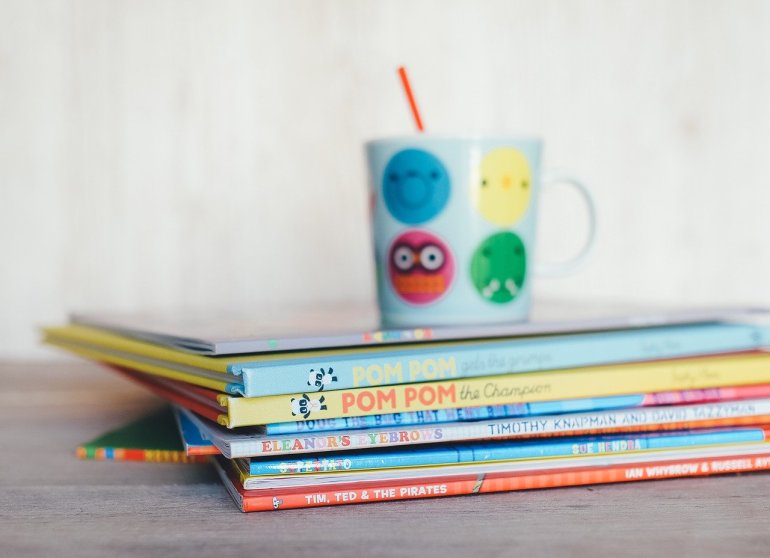Many families suffer from problems related to children responding to their orders or receiving counseling and education attempts, and some parents may be frustrated if some educational methods and practices succeed with a child and fail with his brother, but each child has his own special abilities and talent in learning, and discovering these capabilities is like cutting A great way to communicate, learn and build a child’s personality.
Howard Gardner - a prominent Harvard psychologist - laid the foundations of the "multiple intelligence" theory in 1983, which consisted of 7 types of intelligence to which in 1999 two other types were added, and with general practices researchers have discovered that a child may have a combination of two or Moreover, the child's inclinations can be discovered in several ways, and many universities and organizations provide live questionnaires through the cyberspace to know the child's exact tendencies.
Linguistic intelligence
The child of linguistic intelligence develops the speech quickly, and seeks to speak, write and discover meanings, this child loves to speak and write and can be taught and remembered through written notes and scraps, as he will excel in the spelling game and it will be very entertaining for him, he loves to read stories to him or write it and can prepare a newsletter Short on his subjects.
Computational or logical intelligence
A child with logical intelligence uses his mathematical skills easily, and wishes to know the numbers, and often attracts his attention by money, because it is related to numbers and mathematical operations, he likes to solve mathematical problems and mathematical equations, and can be taught through equations and numbers, by reminding him to prepare the tasks that he must spend While enjoying shopping, he will enjoy calculating the value of purchases without a calculator.
Auditory intelligence
A child with this intelligence can compose at a young age without a musical note, and facilitate his teaching of stories and languages by converting regular or scientific lessons, history or geography into the songs of his composer, as he can link any linguistic content to a melody, and thus repeat it happily.
Visual intelligence
A child with visual intelligence is associated with pictures, thinks about them and imagines in his mind everything pictured in order to understand or remember him, and excels in using puzzles and building and construction games, repair and design, and can be assisted with education and remembrance through the work of photo assemblies, and can be taught to arrange his tools by photographing all the steps of the arrangement Step by step, assembling it into one picture and placing it in a clear place in his room, and when he takes one look at that picture, he remembers it, and so he learns how to arrange his room, because attaching anything to pictures facilitates his life completely.
Physical intelligence
A child with physical intelligence controls his body brilliantly, and besides his mathematical superiority he loves to dance, and excels in the performing performance, which is an educational entrance for him, as he can represent the performance of personalities and situations to learn history, geography and science, and he can also learn the language through plays with high linguistic content, It is difficult to commit to education while sitting in a seat, he must continue in movement and his mind is linked to the muscular effort while entering data for his mind, and he suffers immediately if restricted, he can read while walking, and he can hear music while running in the open air.
Interactive intelligence
The characteristics of the child with interactive intelligence emerge through his cooperation with others and his ability to integrate into groups, and he is one of the very flexible personalities in receiving information in different ways, as he interacts in various ways.
Self-intelligence
A child who is dominated by the qualities of self-intelligence faces some problems in integrating with his peers, as he enjoys loneliness, increases his focus while he is alone away from the hustle and bustle of large groups, and learns by linking things to his daily life, so if the educational lesson on the water cycle can be dropped on How the family uses water daily, explaining the academic subjects through the child's personal life and the situations and living examples he touches on his own.
Natural intelligence
The child of natural intelligence loves animals, plants and landscapes, and enjoys receiving his lessons outdoors, but his scientific lessons can also be linked to animals and plants in terms of how they grow and where they grew up, and when he studies about countries, he can be told that one of them is characterized by the spread of a kind of distinctive animal or forest.
Existential and philosophical intelligence
A child with existential intelligence possesses the qualities of a young philosopher, as he is highly controversial, and his eagerness to know is inexhaustible and easy to learn from his existential questions at a young age, so he may ask "How did creation begin?", And despite the apparent difficulty of these questions, it reflects the depth of this child's thinking, Which may cause him extreme frustration if his questions and discussions, which are usually intellectually stressful, are ignored.
These children may suffer from isolation in school, and often suffer from bullying due to the stress of teachers due to the frequent debates, so their questions must be taken seriously, and they can be directed to reading and searching for difficult answers, guiding them on how to deal with others and choosing the appropriate time to ask questions. Hard.
Certain traits dominate children more often than others, and despite the accuracy of the tests, there are moments that may cause the child to pass through other traits, so it is important to know how to deal with each trait and how to provide information, and educational activity in an appropriate manner that is usually fun if Fit with his adjective.

